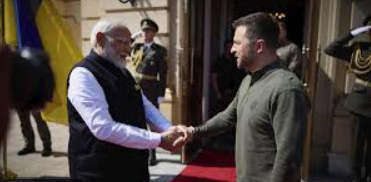If India Changes Its Attitude Towards Russia, the War Will End:-
If India Changes the ongoing conflict between Russia and Ukraine has captured global attention, with the world’s major powers taking sides or attempting to mediate peace. Among the many voices, Ukrainian President Volodymyr Zelensky has made a surprising assertion: if India changes its attitude towards Russia, the war could come to an end. This statement has opened up a new discourse on India’s potential role in the conflict and the influence it could wield in fostering peace. In this article, we will delve into Zelensky’s statement, analyze India’s relationship with Russia, explore the geopolitical ramifications, and evaluate whether India could indeed be the key to ending the war. 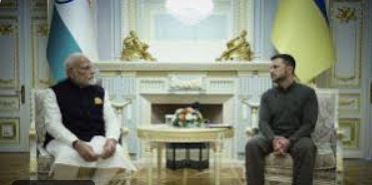 for more information click on this link
for more information click on this link
Indi a’s Historical Relationship with Russia
India and Russia share a long-standing relationship that dates back to the Soviet era. This relationship has been characterized by strong political, military, and economic ties. During the Cold War, India maintained a non-aligned stance but leaned heavily towards the Soviet Union for military and strategic support. The Indo-Soviet Treaty of Peace, Friendship, If India Changes and Cooperation signed in 1971 marked a significant milestone in their relationship. The collapse of the Soviet Union did not sever these ties; instead, India and Russia continued to build upon their historical partnership.
The defense sector remains one of the pillars of the India-Russia relationship. India has been one of the largest importers of Russian arms, with deals involving fighter jets, tanks, and missile systems. The cooperation extends to joint military exercises and technology transfers. Economically, If India Changes the two countries have engaged in various trade agreements, with Russia being a key supplier of energy resources to India.
India’s Neutral Stance in the Russia-Ukraine War
Since the outbreak of the Russia-Ukraine war in 2022, India has maintained a neutral stance, refraining from condemning Russia outright or supporting Western sanctions. Instead, India has called for dialogue and diplomacy to resolve the conflict. This position stems from India’s strategic interests and its historical ties with Russia.
India’s dependence on Russian defense equipment and energy resources has influenced its cautious approach. Additionally, India’s foreign policy has traditionally emphasized strategic autonomy, avoiding taking sides in international conflicts. This approach allows India to maintain cordial relations with both Russia and the Western powers, If India Changes including the United States and European Union, which have been vocal in their support for Ukraine. 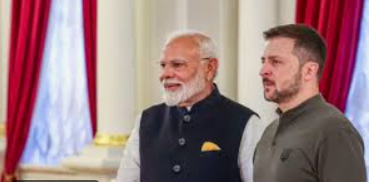 for more information click on this link
for more information click on this link
Zelensky’s Appeal to India
President Zelensky’s assertion that India could play a crucial role in ending the war is rooted in his belief that India’s influence on Russia could be a game-changer. He has appealed to India to leverage its relationship with Russia to push for a ceasefire and a peaceful resolution to the conflict. Zelensky’s call to India is not just a diplomatic overture but a recognition of India’s rising global stature.
Zelensky has expressed admiration for India’s democratic values and its position as the world’s largest democracy. He believes that India, with its moral authority and influence, could persuade Russia to reconsider its aggressive stance. Zelensky’s appeal is also a strategic move to garner support from the Global South, If India Changes where India is a key player. By drawing India into the conflict resolution process, Zelensky aims to shift the narrative and increase pressure on Russia from non-Western quarters. 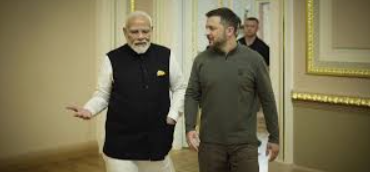 for more information click on this link
for more information click on this link
The Geopolitical Implications of India’s Shift
If India were to heed Zelensky’s call and change its attitude towards Russia, the geopolitical landscape would undergo significant shifts. Such a move would not only impact the Russia-Ukraine war but also reverberate across Asia and beyond.
- Impact on India-Russia Relations: A shift in India’s stance could strain its relations with Russia, potentially jeopardizing long-standing defense and energy partnerships. Russia might perceive this as a betrayal, leading to a recalibration of its strategic ties with India. This could open the door for closer Russia-China relations, If India Changes which might pose a challenge to India given its contentious relationship with China.
- India’s Relations with the West: On the flip side, India’s alignment with the Western position on Ukraine could bolster its ties with the United States and European Union. India’s participation in initiatives like the Quad and its growing strategic partnership with the West could gain further momentum. This could enhance India’s role as a counterbalance to China in the Indo-Pacific region.
- Global Power Dynamics: India’s change in stance could signal a shift in global power dynamics, where emerging powers like India take on more active roles in conflict resolution. This could lead to a more multipolar world order, If India Changes with India positioning itself as a mediator in international conflicts.
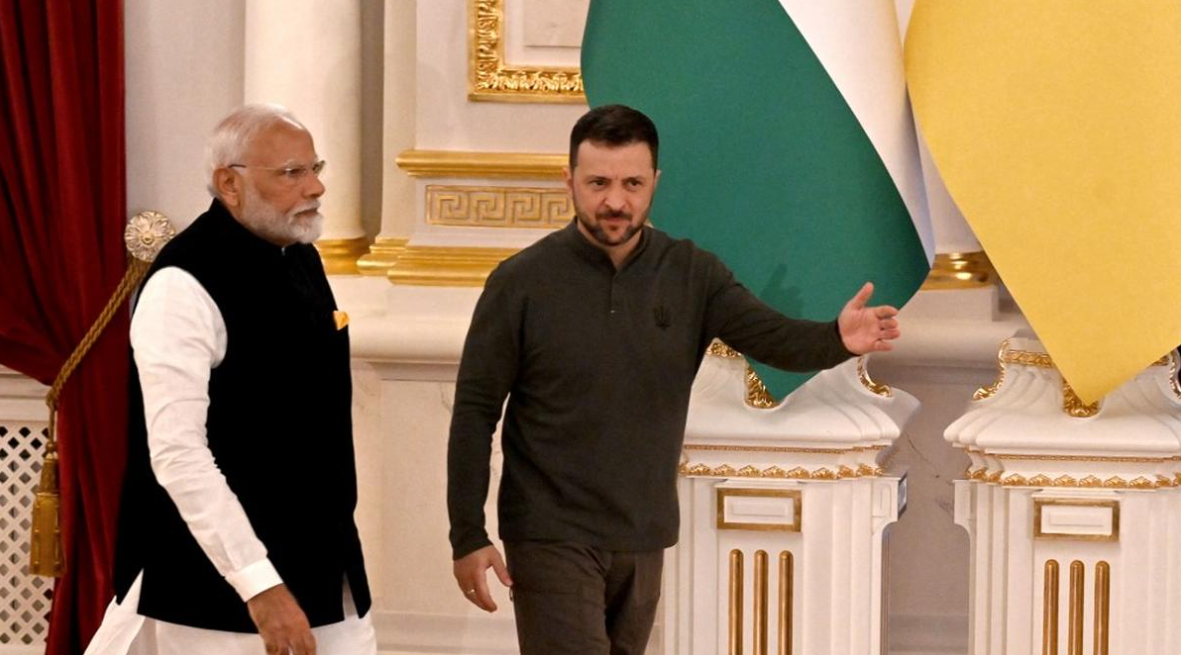 for more information click on this link
for more information click on this link - Impact on the BRICS Bloc: India’s shift could also affect the BRICS (Brazil, Russia, India, China, South Africa) grouping, If India Changes which has been seen as a counterweight to Western dominance. A divergence in India’s and Russia’s positions on Ukraine could weaken the cohesion of BRICS, impacting its effectiveness as a bloc.
The Moral and Ethical Dimensions
Zelensky’s appeal to India also touches upon the moral and ethical dimensions of the conflict. India, as a champion of non-violence and a leader in the Global South, is being called upon to take a stand against aggression. The principles of sovereignty and territorial integrity, If India Changes which India has historically upheld, are at stake in the Ukraine conflict. Zelensky’s appeal challenges India to align its foreign policy with its ethical and moral values.
Moreover, the humanitarian crisis resulting from the war, with millions of Ukrainians displaced and thousands killed, adds urgency to the call for India to intervene. Zelensky has framed the conflict as not just a regional issue but a global one, If India Changes where the consequences of inaction could embolden aggressors elsewhere. 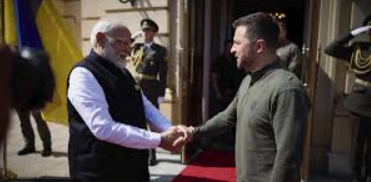 for more information click on this link
for more information click on this link
India’s Strategic Calculations
While Zelensky’s appeal is compelling, India’s response will be guided by its strategic calculations. India’s foreign policy has always been driven by pragmatism, If India Changes balancing moral imperatives with national interests. In the case of the Russia-Ukraine war, India’s decision will hinge on several factors:
- National Security: India’s national security concerns, particularly regarding its borders with China and Pakistan, If India Changes will play a crucial role in its decision-making. Any move that could weaken India’s defense capabilities or strain its strategic partnerships will be carefully weighed.
- Economic Interests: India’s economic interests, including its energy security, will be a significant consideration. Disrupting trade ties with Russia could have repercussions on India’s energy imports and economic stability.
- Global Leadership Aspirations: India’s aspirations for a greater role in global governance will also influence its stance. As a potential permanent member of the United Nations Security Council, India’s actions on the global stage are closely watched. Aligning with international efforts to resolve the Ukraine conflict could bolster India’s bid for global leadership.
- Domestic Considerations: Domestic public opinion and political considerations will also shape India’s response. The Indian government will need to balance international expectations with domestic sentiments, If India Changes particularly in a diverse and politically vibrant democracy like India.
Possible Scenarios: India’s Path Forward
Given the complexities of the situation, If India Changes India’s path forward could take several forms:
- Mediation and Dialogue: India could step up its diplomatic efforts to mediate between Russia and Ukraine, leveraging its neutral position and strong ties with both countries. This approach would align with India’s call for dialogue and diplomacy while maintaining its strategic autonomy.
- Gradual Shift in Stance: India could gradually shift its stance, moving closer to the Western position on Ukraine while avoiding a complete break with Russia. This could involve supporting humanitarian efforts, If India Changes participating in international sanctions that do not directly impact India’s interests, or increasing diplomatic pressure on Russia.
- Status Quo: India might choose to maintain its current neutral stance, continuing to call for dialogue and avoiding taking sides. This approach would minimize risks to India’s strategic and economic interests but could limit its influence in global conflict resolution.
- Active Alignment with the West: In a more dramatic shift, India could align itself more closely with the Western bloc, If India Changes condemning Russia’s actions and joining sanctions. This scenario would signal a major realignment in India’s foreign policy, with significant implications for its relations with Russia and its role in global geopolitics.
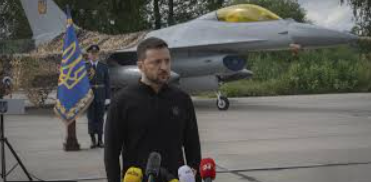 for more information click on this link
for more information click on this link
Conclusion
President Zelensky’s assertion that India could play a decisive role in ending the Russia-Ukraine war is a testament to India’s growing global influence. While the path forward is fraught with complexities, India’s response will be closely watched by the international community. Whether through mediation, If India Changes a gradual shift in stance, or a more active alignment with the West, India’s actions could indeed impact the trajectory of the conflict.
India’s decision will be guided by a careful balance of moral imperatives, strategic interests, and global aspirations. As the world’s largest democracy and a rising global power, India has the potential to shape the future of the Russia-Ukraine conflict and contribute to a more peaceful and just world order. Whether it chooses to embrace this role remains to be seen, but the implications of Zelensky’s appeal will resonate far beyond the borders of Ukraine and Russia. ALSO READ:- Iran’s Hard-Line Parliament Approves All Members of President Masoud Pezeshkian’s Cabinet: A Historic Milestone in Iranian Politics





